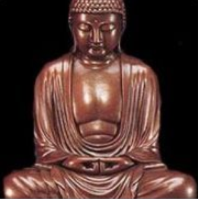I guess I’m curious about generations (namely GenZ and Alpha) who didn’t live in a pre-Internet time. Like,
- How was the concept first explained to you, or when did it click?
- Do you understand how insane it is to have the aggregate of all human knowledge — the only comparable thing once being a physical library or university — one search away? That it’s absolutely insane you can engage in a real-time conversation with someone on the opposite side of the world? That you can find niche communities in an instant?
- Were your parents super strict about internet usage? How quickly did you find workarounds?


GenX here. Got my first computer for HS graduation in 1994. My class had 70 kids in it, we had about 300 kids in total Freshmen to Seniors in a town of 2,500 people. I commuted to college to save money and signed up for a 1-hour seminar so I could get a Linux shell account through the university. From there I could fight to dial into one of twenty phone lines where I could surf the net as text using lynx at 2400 baud. I bought “The Internet Yellow Pages” because I wanted to find Archie & FTP sites to go look up stuff like the MIT lockpicking guide because search engines didn’t yet exist and knowing how to lockpick sounded edgy and cool.
I say this to set the scene for you. Because when I found out that there were people out there in the world on Usenet (when it was still a worldwide forum for discussion) just as geeked out about G1 Transformers as I was, it was something special. The same went for music, comics, books, games, movies. People hate on social media now, and yeah it’s a huge corporate cashgrab and has allowed some real turds to float up to the surface of humanity. But back then, it let rural gay kids find each other too. It let anime nerds find literally anyone to talk to about their hobby. Neurodivergent types could go post for hours with other neurodivergent types about their passions and it was ok. All of us that felt isolated and abnormal everywhere else in real life, could finally feel a sense of belonging with our “online friends.”
The realization “I’m not alone” was a life changing feeling. Like all the pressure being let out of the instapot. It rapidly changed how I viewed people different than myself. It opened my eyes to a reality so far beyond the tiny town I grew up in with its tiny town ambitions and tiny town ideals.
And as its evolved, its changed my learning. I don’t know how to explain the effort necessary to learn new things before search engines. If no one in your small circle had the answer to your problem, it required sitting at a computer and trying things over and over and over until you figured out the answer, for sometimes days or weeks. 2 days ago, I needed to set up a linux box up to auto-login, and after 30 seconds of googling and typing a command, it was working. And while my understanding of why it worked is shallow, I can unwind that command to understand the nuance of it online. And it seems we just take it for granted that we have our personal creativity backed by the knowledge of the whole human race when we need to tackle a problem now.
I’m not saying “kids these days got it easy,” because they’re facing problems I never imagined. But I have an intense joy at seeing how the generations after me seamlessly integrated this thing that changed my life into a device in their pocket. How they share personal struggles unashamedly with their peers, and get instant support from total strangers. How they can find their tribe online much more easily. How it’s just mundane to them now, to the point they don’t remember the specialness of it.
And it morphs all the time. Usenet became forums, became Slashdot, became Fark, became Myspace became Facebook became Twitter became Reddit became Instagram became Tiktok. Hard to believe each of those were “cool” at one point before the Enshitification took over most of them. It felt cool again when I joined Lemmy. No algorithms, slight bar for entry, not yet on the radar of big corporations, mostly perused by passionate people who wanted something outside the reach of its forebears. It feels like we are staking our claim on a little piece of the frontier again.